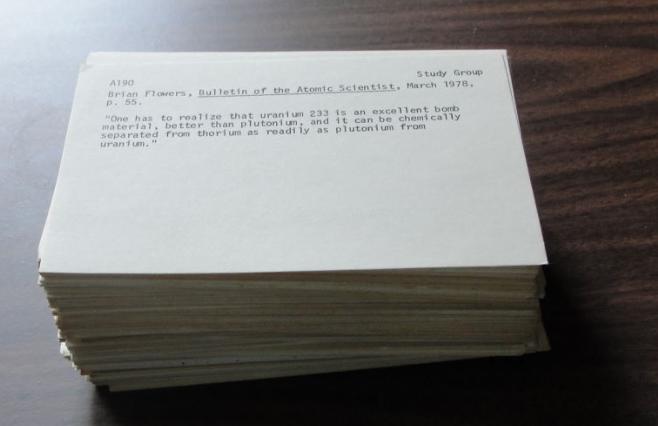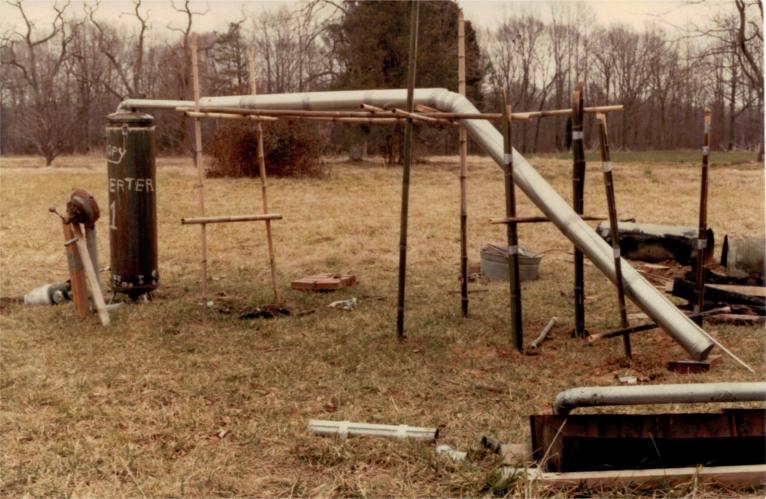Alternative Energy for Fun and Profit
I got the alternative energy bug about the same time I got into politics. It was four decades ago, back in the days of bad hair, disco, leisure suits, and angry ayatollahs. Grim times indeed! Energy policy was the high school debate topic my sophomore year. My debate team partner, Alan Thomas, and I spent many an hour at the community college library reading everything available on energy. We learned many lessons including:
- Solar cells were too expensive, and the technology was changing slowly.
- We needed a better battery before electric cars could make sense.
- Controlled fusion is very, very hard. Research in that direction is mainly fun for physicists.
- If oil prices remain high long enough (around $100/barrel back then), shale oil and synthetic fuel from coal becomes profitable.
- You can run a gasoline engine on charcoal in a pinch. (My grandfather had plans for doing so from World War II. Put a tank of charcoal on a small trailer. Burn the charcoal with insufficient oxygen and some steam thrown in. You get hydrogen gas and carbon monoxide. Pipe the gases to your engine.)
- The gas lines of the 70s were purely a product of Nixon’s price controls.
- The popular scientific press was filled with wishful thinking and gee-whiz articles about prototypes of inventions that never reached the market.

The next year, we took a crack at backyard wood liquefaction.

We learned another important lesson: high school chemistry and some magazine articles are insufficient to the task. (There was no World Wide Web in those days.)
The lessons learned have remained surprisingly relevant over the years. I laughed at the Peak Oil panic. The fearmongers failed to account for Nixon’s price controls. After a long run of high oil prices, Jimmy Carter’s dream of energy security through tapping shale is now a reality. We call it fracking now. Meanwhile, fusion is still “just around the corner.”
Some things have changed. Four decades of slow progress has made photovoltaics economically interesting. (And launching them into space as the science fiction crowed dreamed of now seems a bit silly.) Lithium ion batteries make luxury electric cars possible. Wind energy has made some surprising advances.
I have changed a bit as well. I’ve learned quite a bit of economics as a side effect of my political activism. I also picked up a PhD in physics. This could be useful.
Beyond the Basic Economics of Alternative Energy
Economics 101 teaches that all the federal government has to do is impose a carbon tax equal to the harm caused by fossil fuels, and the market will find the optimal balance of energy conservation, alternative energy, and continued fossil fuel use. This is an important lesson, but boring.
It’s much more fun playing Armchair Commissar, laying out a grid to route wind energy across the continent, or Backyard Mad Scientist, hacking together prototypes of the tech that will put Big Oil out of business. (If enough of you readers buy stuff in the store, I’ll get back into some mad science myself…)
It’s potentially useful too. Markets aren’t magic. The market is the referee and scorekeeper of the economy. You also need the players: inventors, investors, deal makers, advertisers, and early adopters. Since you are reading this article, you are a good candidate to be a player. I can help.
As I will show in the chapters to follow, there are potential markets right now for some of the energy alternatives. Some of these markets are small, but if you get in now, you have a shot at becoming the Bill Gates of green energy. Let us remember that Microsoft started by producing a BASIC interpreter for an incredibly primitive kit computer.
Let us also remember that the history of computer technology is filled with failures. The same will be written about energy in the green future. It pays to be selective; don’t get suckered by silly ideas like Bush’s Hydrogen Economy. And remember that fracking was once considered alternative energy, and was championed by a Democrat President.
A Serious Survey of Alternative Energy Ideas
If you want gee-whiz gushing over every energy press release on the planet, from wearable solar cells to energy-generating art, look elsewhere. In this series we will attempt to determine which ideas are likely to bear fruit and which are probably expensive dead ends.
I intend to focus on the technical and marketing aspects of alternative energy. This series will be geared mainly for the aspiring tinkerer, entrepreneur, and/or investor. But yes, I will lapse and write a bit on government policy as well. There are things that governments can usefully do besides implement a carbon tax. This can include local governments, so some of you might have a shot at playing Real Commissar.


